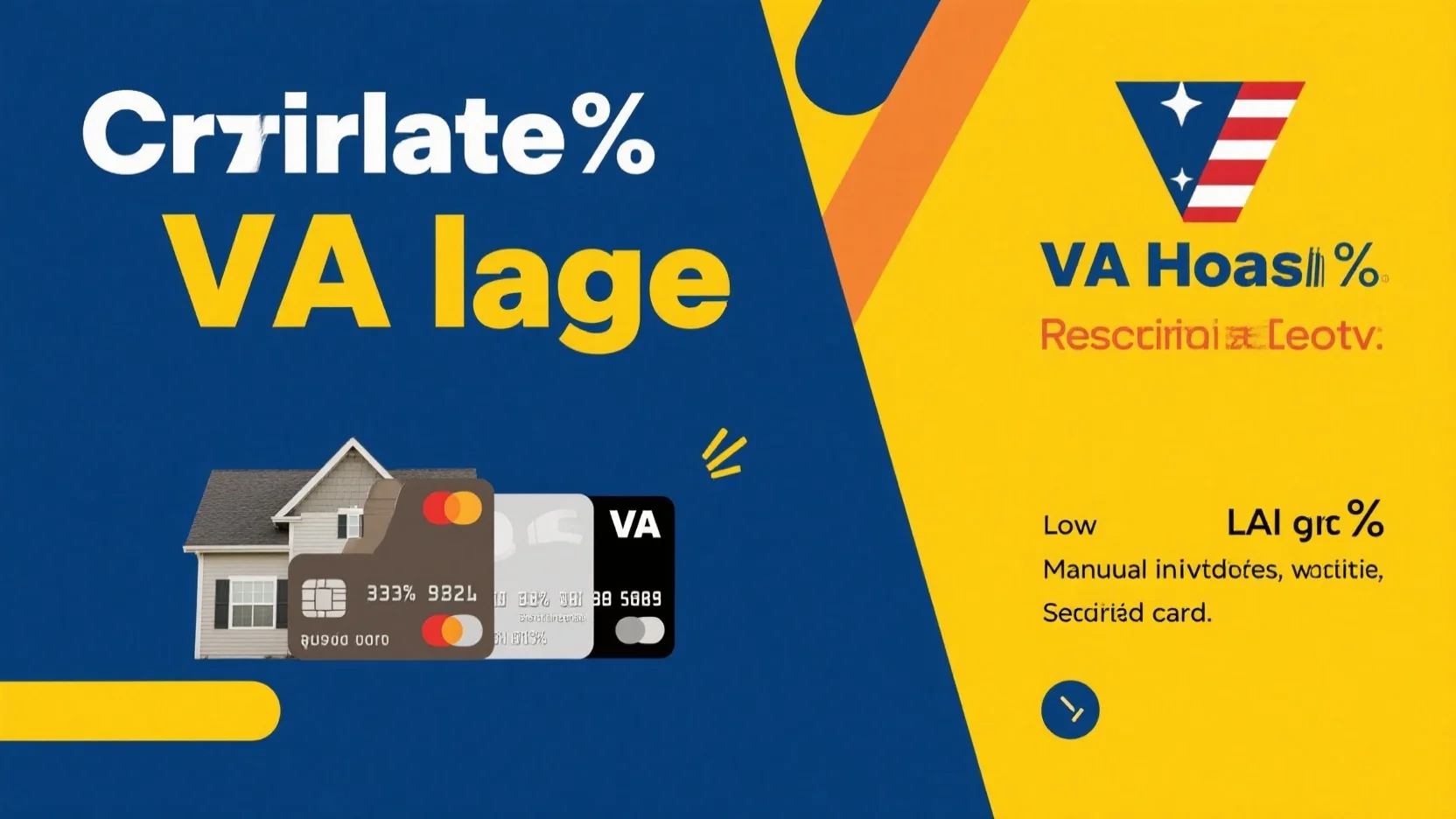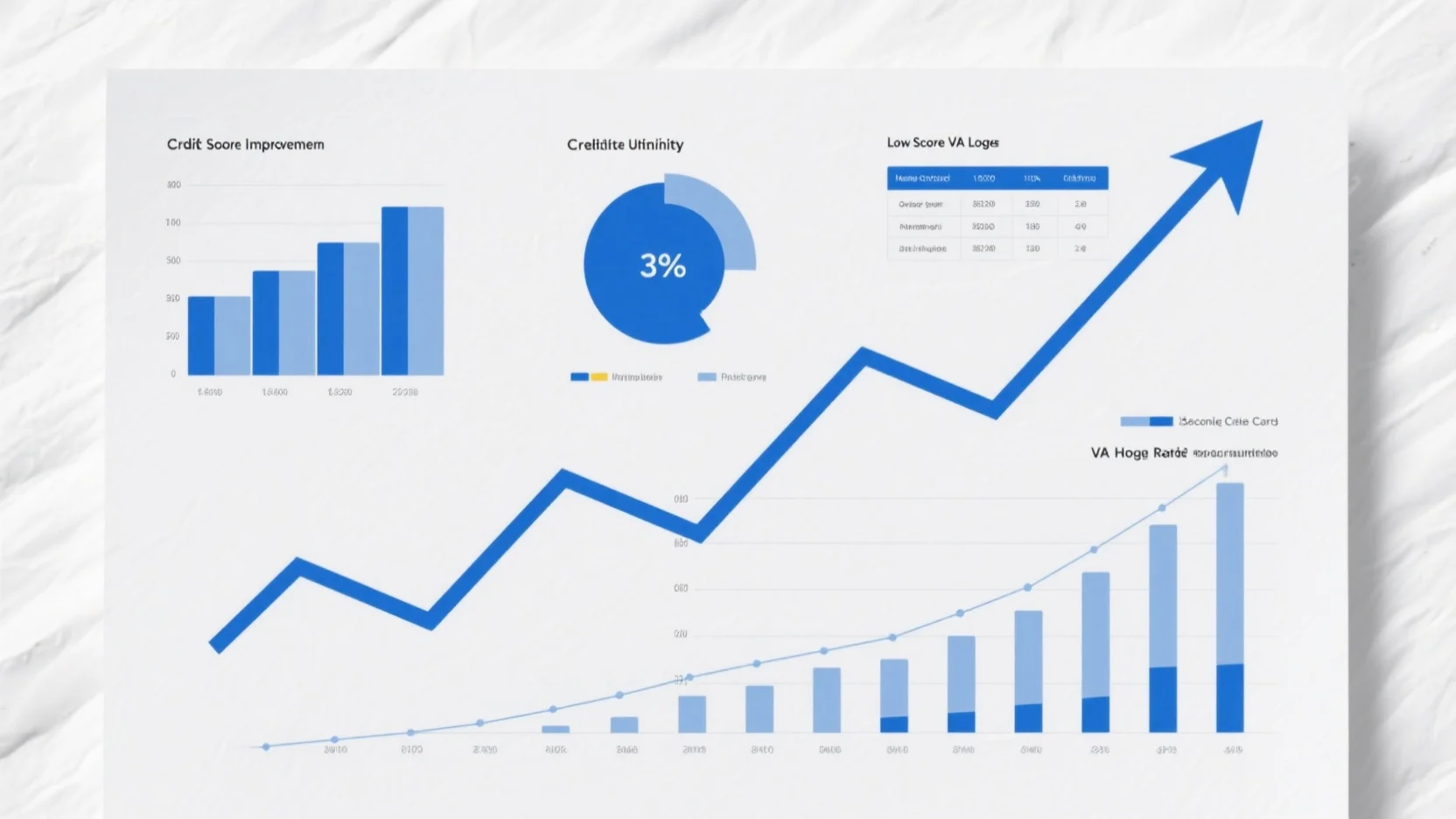
Tips to Qualify for a VA Loan with a Low Credit Score

Image Source: pexels
Understanding how to qualify for a VA loan with low credit score can make the process less daunting. VA loans are designed to be more flexible than conventional loans, providing opportunities for a wider range of borrowers. While conventional loans typically require a minimum credit score of 620, VA loans may allow scores as low as 580. By taking practical steps, you can work on improving your credit score and increase your chances of qualifying for a VA loan with low credit score, paving the way to homeownership.
Key Takeaways
- VA loans are helpful for people with low credit scores. Some loans accept scores as low as 580.
- Raising your credit score can help you get approved. Pay your bills on time and lower your credit card debt.
- A VA loan expert can give you tips to fix credit issues and make your application stronger.
How to Qualify for a VA Loan with Low Credit Score
How VA Loans Differ from Conventional Loans
VA loans stand out from conventional loans due to their flexibility and accessibility. Unlike conventional loans, which often require a minimum credit score of 620, VA loans are more lenient. Some lenders may approve borrowers with scores as low as 580. This flexibility makes VA loans an excellent option for veterans and active-duty service members with less-than-perfect credit.
Additionally, VA loans do not require private mortgage insurance (PMI), which significantly reduces monthly payments. Borrowers also benefit from lower interest rates compared to conventional loans, leading to long-term savings. These features make VA loans a practical pathway to homeownership, even for those facing credit challenges.
Minimum Credit Score Requirements for VA Loans
The Department of Veterans Affairs does not impose a minimum credit score for VA loans. Instead, individual lenders set their own requirements. Most lenders prefer a FICO score of at least 620, but some may accept lower scores with additional scrutiny. This flexibility ensures that veterans and service members with low credit scores still have opportunities to qualify for a VA loan.
Borrowers with lower scores may need to demonstrate other forms of creditworthiness, such as consistent payment history or stable income. By focusing on the overall loan profile rather than just the credit score, VA loans remain accessible to a broader range of applicants.
Why Credit Scores Are Still Important
Although VA loans are flexible, credit scores still play a crucial role in the approval process. Lenders use credit scores to assess risk and determine eligibility. A higher credit score often results in better interest rates and loan terms. Conversely, lower scores may lead to additional requirements, such as a larger down payment or more thorough documentation.
Even with the leniency of VA loans, improving your credit score can enhance your chances of approval and secure more favorable terms. Consistently paying bills on time and reducing debt are effective ways to boost your score and strengthen your loan application.
Steps to Improve Your Credit Score

Image Source: pexels
Pay Bills on Time Consistently
Paying bills on time is one of the most effective ways to improve a credit score. Late payments can remain on a credit report for up to seven years, negatively impacting creditworthiness. Setting up automatic payments or reminders ensures bills are paid promptly. Lenders view consistent on-time payments as a sign of financial responsibility, which strengthens loan applications.
Reduce Credit Card Balances
Lowering credit card balances can significantly boost credit scores. This reduces the credit utilization rate, which accounts for 20% to 30% of a credit score. A lower utilization rate signals responsible credit management.
- Aim to keep the utilization rate below 30% of the total credit limit.
- Focus on paying down high-interest cards first.
- Monitor balances regularly, as most credit scores reflect the most recently reported balances.
Avoid Opening New Credit Accounts
Opening new credit accounts can temporarily lower a credit score due to hard inquiries. Each inquiry stays on a credit report for two years. Instead of applying for new credit, focus on managing existing accounts responsibly. This approach minimizes risk and helps maintain a stable credit profile.
Use Secured Credit Cards Responsibly
Secured credit cards are excellent tools for rebuilding credit. To use them effectively:
- Keep utilization under 30%. For example, with a $200 limit, spend less than $60 monthly.
- Make small, manageable purchases.
- Pay off the balance in full and on time each month.
- Track credit score improvements using monitoring tools.
Dispute Errors on Your Credit Report
Errors on credit reports can harm credit scores and loan eligibility. Common mistakes include incorrect personal information, accounts belonging to others, or inaccurate balances. Regularly review credit reports and dispute inaccuracies to maintain a strong credit profile. Correcting errors can improve credit scores and enhance borrowing opportunities.
Alternative Ways to Show Creditworthiness
Leverage Rental Payment History
Rental payment history can serve as a valuable tool for demonstrating creditworthiness. Lenders often assess a borrower’s overall payment patterns, and consistent rent payments verified by a landlord can strengthen a VA loan application. This approach is particularly helpful for individuals with limited or non-traditional credit histories.
Borrowers should provide documentation, such as canceled checks or bank statements, to prove timely rent payments over the past 12 months. These records highlight financial responsibility and may compensate for a low credit score. The absence of a traditional credit history does not automatically disqualify someone from obtaining a VA loan if alternative payment records, like rental history, are available.
Provide Utility or Phone Bill Records
Utility and phone bill records offer another way to showcase financial reliability. Regular, on-time payments for essential services demonstrate a borrower’s ability to manage recurring expenses. Lenders may consider these records as part of the overall creditworthiness evaluation.
Applicants should gather proof of consistent payments, such as account statements or payment confirmations. These documents can help build a stronger case for loan approval, especially when traditional credit scores fall short. By presenting a history of responsible payments, borrowers can improve their chances of qualifying for a VA loan.
Consider Manual Underwriting
Manual underwriting provides an alternative path for borrowers with low credit scores to qualify for a VA loan. Unlike automated systems, manual underwriting involves a personalized assessment of the applicant’s financial situation. This process allows lenders to consider factors like income stability, residual income, and overall financial health.
Borrowers benefit from the flexibility to explain past credit challenges and provide detailed documentation. Manual underwriting evaluates residual income to ensure it meets VA standards, even if the debt-to-income ratio is higher. While the process may involve stricter requirements, it opens doors to favorable loan terms, including competitive interest rates. For those wondering how to qualify for a VA loan with low credit score, manual underwriting offers a tailored solution.
Managing Adverse Credit Events
Addressing Collections or Charge-Offs
Collections and charge-offs can significantly impact credit scores, but addressing them can improve financial standing. Borrowers should begin by reviewing their credit reports to identify outstanding debts. Contacting creditors to negotiate a settlement or payment plan can help resolve these accounts. Many creditors are willing to accept partial payments or remove negative marks once the debt is settled.
Paying off collections demonstrates responsibility and reduces the risk for lenders. Borrowers should request written confirmation of any agreements to ensure accurate updates to their credit reports. By tackling collections and charge-offs proactively, applicants can strengthen their VA loan applications and rebuild trust with lenders.
Rebuilding Credit After Bankruptcy
Recovering from bankruptcy requires patience and strategic actions. Borrowers should focus on rebuilding their credit profiles to qualify for a VA loan. Key steps include:
- Pay bills on time to establish a positive payment history.
- Lower the debt-to-income ratio by managing debts effectively.
- Keep credit utilization below 30% to show responsible credit use.
- Maintain steady employment to demonstrate reliable income.
- Write an explanation letter to clarify the bankruptcy and outline financial improvements.
These practices highlight financial stability and commitment to better credit management. Lenders value consistent efforts to rebuild credit, making it possible to secure a VA loan after bankruptcy.
Handling Late Payments on Your Report
Late payments can harm credit scores, but borrowers can take steps to mitigate their impact:
- Pay overdue amounts immediately to limit further damage.
- Contact creditors to request fee waivers or penalty APR removal.
- Set up autopay to avoid future missed payments.
- Adjust payment due dates to align with cash flow.
- Explore debt settlement options if managing multiple debts becomes challenging.
By addressing late payments promptly and implementing preventive measures, borrowers can improve their creditworthiness and enhance their chances of VA loan approval.
Benefits of Working with a VA Loan Specialist

Image Source: pexels
How Specialists Can Help with Credit Challenges
VA loan specialists provide tailored support to borrowers facing credit challenges. They offer personalized strategies to manage debts and improve creditworthiness. For example, specialists can guide applicants in demonstrating compensating factors, such as stable employment or consistent income, to offset low credit scores.
These professionals also assist borrowers in navigating manual underwriting, which evaluates financial health beyond credit scores. By highlighting responsible financial behavior, such as on-time payments and efforts to resolve past hardships, specialists help applicants present a stronger case to lenders. Their expertise ensures that borrowers maximize their chances of approval, even with less-than-perfect credit.
Why Expert Guidance Matters
Expert guidance plays a critical role in navigating the VA loan process, especially for those with low credit scores. Loan officers possess the knowledge to help borrowers demonstrate compensating factors effectively. They also assist in managing debts and creating budgets, which improves financial standing over time.
Specialists tailor their advice to each borrower’s unique credit situation. This personalized approach enhances the likelihood of loan approval. By collaborating with experts, borrowers can present their financial profiles in the best possible light. Specialists also ensure that applicants meet all requirements, reducing the risk of delays or denials.
For those wondering how to qualify for a VA loan with low credit score, working with a VA loan specialist provides invaluable support. Their insights and strategies empower borrowers to overcome credit challenges and achieve homeownership.
Improving credit scores and showcasing creditworthiness can make VA loans accessible. Key strategies include:
- Monitor credit reports for errors.
- Pay bills on time.
- Lower debt and maintain a credit utilization ratio below 30%.
- Avoid multiple credit inquiries.
Consulting a VA loan expert provides tailored advice, budgeting help, and strategies to offset low credit scores.
FAQ
What is the lowest credit score needed for a VA loan?
Most lenders prefer a minimum credit score of 620. However, some may approve scores as low as 580 with additional requirements.
Can I qualify for a VA loan after bankruptcy?
Yes, borrowers can qualify after bankruptcy. Lenders typically require a waiting period of 2 years and evidence of improved financial habits.
Does paying off collections improve my chances of approval?
Yes, resolving collections demonstrates responsibility. Lenders view this positively, increasing the likelihood of approval and potentially improving credit scores.
